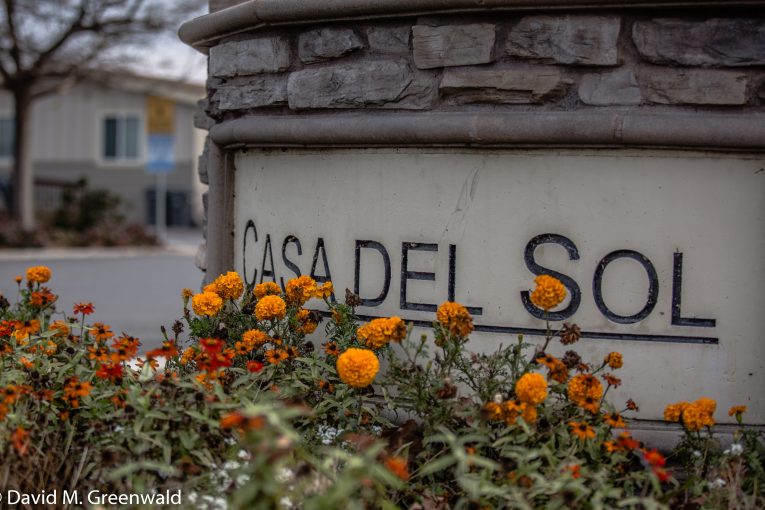

By David M. Greenwald
Executive Editor
Woodland, CA – In October Justin Gonzalez was acquitted of murder in the retrial of the 2016 Case Del Sol case. He served seven years of prison, but had his sentence overturned last year and then was subsequently acquitted.
This weekend the Vanguard learned that Gonzalez is one of the most recent entries in the National Registry of Exonerations, which has tracked and identified 3424 exonerations since 1989. The project is run out of the UC Irvine Newkirk Center for Science and Society and the University of Michigan and Michigan State University Law Schools.
Following the October acquittal, the Vanguard checked with Maurice Possley, a Pulitzer Prize-winning journalist and Senior Researcher, who confirmed that Gonzalez qualified as an exoneree.
According to the website, an exoneration occurs when a person has been convicted of a crime “and, following a post-conviction re-examination of the evidence in the case, was relieved of all the consequences of the criminal conviction” AND “an acquittal of all charges factually related to the crime for which the person was originally convicted, in a court of the jurisdiction in which the person was convicted.”
On August 30, 2016, “41-year-old Ronald Antonio was fatally stabbed outside his home at the Casa del Sol mobile home park in Woodland.”
Gonzalez was identified by Ruby Aradoz “as the person she saw grab Antonio in a bearhug from behind and hold him while Velazquez stabbed him.”
Gonzalez was convicted and sentenced to life in prison despite the defense motion post-trial to set aside the verdict after learning of a recorded conversation between Detective Sergio Pimentel and Aradoz.
Aradoz had originally been a co-defendant, but copped to a plea and became a star witness for the prosecution.
Among other things in the recording was a conversation where “Pimentel advised Aradoz that it was not a good idea to let the jury know her sentiment about her memory, which she admitted was faulty the evening in question due to heavy intoxication resulting in periods of blackouts before and after the murder.”
On appeal, the Third District California Court of Appeal vacated Gonzalez’s conviction in March of 2022. The critical reason was a change in state law that  eliminated a conviction for murder based on natural and probable consequences.
eliminated a conviction for murder based on natural and probable consequences.
When Gonzalez went to trial a second time, he not only had the state law change and several new witnesses, but a key piece of evidence in the form of DNA testing done on the shirt that Gonzalez was wearing the night of the crime that showed Antonio’s DNA was not found on the shirt.
During closing arguments, Public Defender Ron Johnson argued that it was “impossible” that Johnson had grabbed Antonio in a bear huge while getting stabbed and not get DNA from blood or sweat on the shirt.
Johnson argued to the jury, “This is a compelling case that he didn’t do it, that he is actually innocent.”
In an interview with the Vanguard, Gonzalez told the Vanguard he never even saw the stabbing.
“I never left that corner. Those shadows were me the whole time,” he said referring to key evidence in the form of a video of the scene.
There was a blind spot between the two camera angles. And Public Defender Ron Johnson pointed to some shadows that were visible on the video as the location of Justin Gonzalez at the time when the murder took place—also off camera.
“I never passed the corner at all,” he said, explaining that he never even saw the killing. “I thought Alex [Velazquez] killed the guy that was on the skateboard that whole time. I thought that’s who he killed.”
He also told the Vanguard that the police had him questioning Velazquez if there was anyone else there.
He explained, “I had asked Alex, I said before that what really happened? And he said he did it by himself. So then I asked him again after that, I said, Hey, was there someone else with you? Was there another Northerner with you or something saying two people were involved in this? And again, he just said, no. He did it by himself.”
As indicated above, the National Registry of Exonerations is a project of the Newkirk Center for Science & Society at University of California Irvine, the University of Michigan Law School and Michigan State University College of Law. It was founded in 2012 in conjunction with the Center on Wrongful Convictions at Northwestern University School of Law.
To date, as reported above, it has identified 3424 exonerations. Justin Gonzalez is now listed as one of them.

